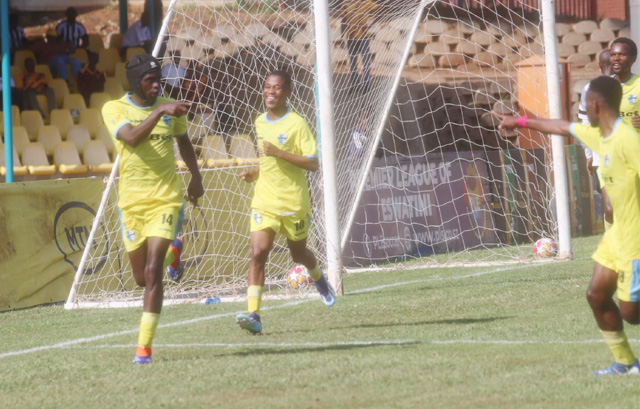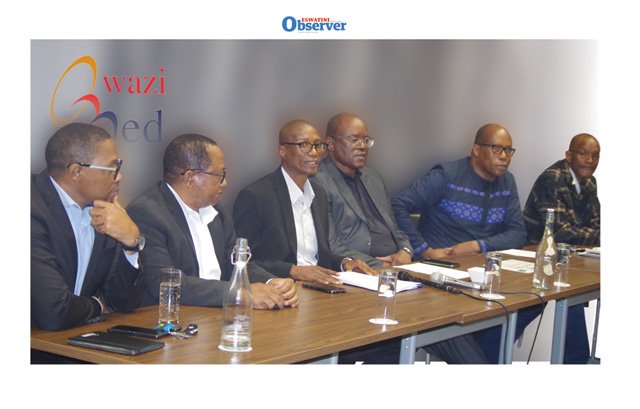By Zwelihle Sukati | 2019-08-24

Women with disabilities have made damning allegations that they are being forced to become sterile by health practitioners, who view them as incapable of being good mothers.
It is alleged that some health practitioners chastise them for falling pregnant.
This publication understands that the health practitioners coerce them into removing their uterus as they are told that they were incapable of mothering children because of their disabilities.
female
A uterus is the organ in the lower body of a woman or female mammal where offspring are conceived and in which they gestate before birth; the womb.
One woman with a disability has told of her nasty experience in the hands of a nurse while in labour at one of government’s referral hospitals. *Simangele lives to tell of her horrible experience at the maternity section when she was ridiculed by nursing staff for coming to give birth to her second child.
She moves around in a wheel chair and is 25 years old.
“One nurse at first wanted to know how I was going to mother the baby because I myself needed to be taken care of,” she said during the interview with this publication.
conversation
She said her conversation was joined by two other nurses who told her, “khipha lesinye ngoba ngatsi awukhoni kuhlala ungalali, ne-condom awuyifuni (get your uterus removed because you can’t stay away from having sex and you fail to use protection)”.
She said she felt humiliated as the comments turned into a comedy from the other females in the ward. She said the nurses seemed curious about her sexuality and also how she had managed to raise her other child as a single mother.
Her second child is fathered by a different man.
“I felt like I was being stripped naked. The conversation turned serious when I was told to consider being made sterile before I leave the hospital.”
After giving birth, the young woman told of her experience to her auntie. She advised against taking anything that would make her sterile.
“My auntie said children were a blessing from God.
“No matter how poor and how people identify me with my disability, I am still human and a future filled with so many possibilities.”
After having refused to be made sterile and fearing not being capable of having any more children, one nurse made remarks to the effect that next time she returned, there would be no negotiations.
Simangele said one of the nurses, when she was about to be discharged, said:
“Bafa baka-Social Welfare ngetinkinga tebantfwana letentiwa ngamabomu.
Utalitsini leliswane umalo anti wakho anemkhuhlane? (The Social Welfare department has enough issues of children’s problems caused deliberately. How are you going to take care of this baby when your auntie is sick?)”
experts
Uterus removal has its side effects. According to experts, ovaries and tubes are also removed, if necessary. Risks, however, include potentially longer recovery periods and scarring may be more noticeable. The surgeon removes the uterus and possibly other organs as well, through the private parts.
This procedure can sometimes result in vaginal damage.
Such women taken to be without sexual feelings
Hearing of what women with disabilities go through at our public health institutions will slice your heart and break your emotions.
Disabled Women of Swaziland Director Buyi Masuku says her organisation has been made aware of individual experiences of some women with disabilities when being attended to in public health institutions.
It is said some now fear visiting the clinics to get treatment for Sexually Transmitted Infections (STIs) because of the chastisement, humiliation and derogatory remarks they are bound to be subjected to.
“It is like they are not supposed to be sexually active because of their disabilities,” Masuku said.
“Attending to them is like they are being granted a favour as they are persons who shouldn’t be having sex in the first place, let alone falling pregnant, according to some who have shared their horrible experiences.”
She said the attitude was so heart-breaking that government needed to do a lot of educating in all sectors about service delivery and persons living with disabilities.
Parents sterilise disabled children
Disability can be from birth, while in others it may be a result of illness even in adulthood.
As a way to protect their children from unwanted pregnancies, some parents get to sterilise their daughters with disabilities.
Parents of children with disabilities are said to resort to having their children incapable of having babies because of the burden and responsibilities that come with raising a child.
“I once had a conversation with one parent who told me that she had to sterilise her daughter without her knowing and appreciating the medical procedure because of her mentally challenged condition,” said Buyi Masuku, Director of Women with Disabilities in Swaziland.
Masuku said a study was being conducted by a lecturer at the University of Eswatini on health service delivery for people with disabilities and pointers were that their treatment when they go to labour was found very wanting.
Gross violation, Human Rights Commission to probe
Human Rights Commissioner Sabelo Masuku says this is a shocking gross violation of human rights and one of a kind the commission has never dealt with before.
wish
“How we wish those women with such experiences can come to report to the commission. It would not be enough to condemn this gross human rights violation but further we would like to invite them to report to us and we will give them first priority,” Masuku said.
He said even though they might at first be afraid to come out in the open but the commission invites them to find courage to come forth.
“Then, as a commission we will make our investigation, engage the implicated medical practitioners and their employers; be it in the private or public sector.”
Masuku said there was a need to conduct programmes aimed at educating about human rights within the health sector.
Nurses say either a societal problem or medical condition
President of the Nurses Association Bheki Mamba says a woman who frequently gives birth by caesarean section puts her own life in danger.
He said this could probably be the reason nurses advised the cited patients on birth controls, not just for a woman with disabilities, but any woman for that matter.
“In this case you might find that because of the nature of their disabilities their lives are at risk, yet back at home there are reasons she was expected to keep on making babies,” Mamba said.
He said even with a normal abled women, if she keeps giving birth by caesarean section, even before she has completely healed, that was life-threatening.
“And the advice is that she stops falling pregnant because, for some reason, she can’t give birth the normal way.”
The nurses association president went on to state, however, that there was also a need for nurses to have continuous educational programmes on health rights. “Everyone has a right to access health care.”
He said another view could be that the nurses themselves had a societal problem when it came to dealing with persons with disabilities. “As nurses, we also have a serious problem when it comes to the use of sign language.
“It is very difficult when consulting with a person who uses sign language,” he pointed out. Mamba called upon the organisations for people with disabilities to engage them so that they share their experiences and likewise the nurses will share their expertise. *Name disguised to conceal identity of interviewee.
SWAGAA frowns
Swaziland Action Group Against Abuse (SWAGAA) Communications, Officer Slindele Nkosi said patients service at clinics and hospitals was the most important element for any medical practice.
“Over and above this, negative attitudes towards patients have irreversible repercussions, for instance a patient may in anger further infect other people simply because they did not get medical attention,” Nkosi said.
If testimonies of individual experiences of women with disabilities are anything to go by, this is another serious violation of human rights, as well as the United Nations Sustainable Development Goals (SDGs) number three and 10.
The Sustainable Development Goals are the blueprint to achieve a better and more sustainable future for all. They address the global challenges we face, including those related to poverty, inequality, climate, environmental degradation, prosperity and peace and justice.
Goal number three addresses issues of good health and well-being, while goal number 10 is about reduced inequality. All 17 goals interconnect and in order to leave no one behind, it is important that we achieve each goal and target by 2030.
The kingdom of Eswatini is committed to the 2030 Agenda and Africa’s Agenda 2063.
Advice from World Health Organization
Article 25 of the United Nations Convention on the Rights of Persons with Disabilities (CRPD) reinforces the right of persons with disabilities to attain the highest standard of health care, without discrimination.
The World Health Organization says addressing barriers to health care policy and legislation need to be assessed and changes made.
“Assess existing policies and services, identify priorities to reduce health inequalities and plan improvements for access and inclusion.
Make changes to comply with the CRPD. Establish health care standards related to care of persons with disabilities with enforcement mechanisms,” reads part of the Web page of the World Health Organization on Health Care and Persons with Disabilities.
“Integrate disability education into undergraduate and continuing education for all health-care professionals. Train community workers so that they can play a role in preventive health care services. Provide evidence-based guidelines for assessment and treatment.”
share story
Post Your Comments Below
Social media users have reacted with shock and sorrow to the death of former Mhlume Unite...

Sisonkhe FC ……........….. (0)2
Mpendulo 55th, Thab...
Health officials have reported a significant decrease in new HIV infections among men, in...

THE recent turn of events at SwaziMed has underscored deep-rooted governance challenges that thre...
All material © Swazi Observer. Material may not be published or reproduced in any form without prior written permission.
Design by Real Image Internet